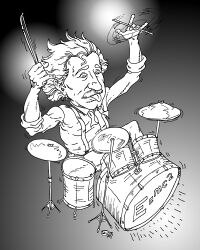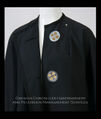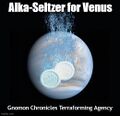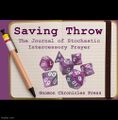October 17: Difference between revisions
(Created page with "{{Selected anniversaries/October 18}}") |
No edit summary |
||
| (4 intermediate revisions by the same user not shown) | |||
| Line 1: | Line 1: | ||
{{Selected anniversaries/October | {{Daily Image/October 17}}{{Preface/October 17}} | ||
== Better Than News == | |||
{{Better Than News/October 17}} | |||
== Beyond Plausible == | |||
{{Beyond Plausible/October 17}} | |||
== In Other Words == | |||
{{In Other Words/October 17}} | |||
== Are You Sure == | |||
{{Are You Sure/October 17}} | |||
== Selected Anniversaries == | |||
{{Template:Selected anniversaries/October 17}} | |||
== Topic of the Day == | |||
{{Daily Favorites/October 17}} | |||
{{Template:Categories: October 17}} | |||
Latest revision as of 04:54, 16 October 2024
Better Than News
Leprechaun: Emerald City is an American musical fantasy horror film about a vengeful leprechaun who believes a family has stolen his yellow brick road.
Welcome Back, Joker is an American sitcom thriller starring Gabe Kaplan as a high school teacher in charge of a racially and ethnically diverse criminal class called the "Arkham Hogs".
Willy Wonka and the Elephant Man is an American drama film starring Gene Wilder and John Hurt.
John Wick's Dracula is a 1992 American Gothic horror film directed and produced by John Wick.
Helljabbar is a 2021 British medical horror film about a pain induction device which summons the Cenobites, a group of extra-dimensional, sadomasochistic Bene Gesserit who cannot differentiate between humans and animals.
My Buttons Have Buttons is a haberdashery and recursion services provider based in New Minneapolis, Canada.
Beyond Plausible
Slaughterhouse-Five in the Rye is a 1972 American comedy-drama military science fiction film set during the Second World War, often viewed by adolescents for its themes of angst and alienation, and as a critique of superficiality in society.
Three Thousand Years of Long Pig is a 2022 American dramatic fantasy adventure television series about human cannibalism.
In Other Words
Death & Tacos is a Mexican-themed funeral home and restaurant.
Alka-Seltzer for Venus is a proposal to terraform Venus using enormous Alka-Seltzer tablets.
Are You Sure

• ... that mathematician Jacques Hadamard (8 December 1865 – 17 October 1963) contributed to number theory, complex function theory, differential geometry and partial differential equations; and that Hadamard described the creative process as having four steps: Preparation, Incubation, Illumination, and Verification?
• ... that Arab members of OPEC cut production by 5% and instituted an oil embargo against Israel's allies: the United States, the Netherlands, Rhodesia, South Africa, and Portugal on October 17, 1973; and that Saudi Arabia only consented to the embargo after Nixon's promise of $2.2 billion in military aid to Israel?
• ... that astronomers Wilhelm Fabry, Michael Maestlin and Helisaeus Roeslin were able to make observations of the supernova now known as Kepler's Supernova on 9 October, but did not record the supernova; that the first recorded observation in Europe was by Lodovico delle Colombe in northern Italy on 9 October 1604; that Johannes Kepler was only able to begin his observations on 17 October while working at the imperial court in Prague for Emperor Rudolf II; and that the supernova was subsequently named after him, even though he was not its first observer, as his observations tracked the object for an entire year?
Selected Anniversaries
1604: Kepler's Supernova: German astronomer Johannes Kepler observes a supernova in the constellation Ophiuchus.
1776: Leonhard Euler reads a paper to the St. Petersburg Academy of Science entitled "De quadratis magicis," in which he gives a method of constructing magic squares by means of two orthogonal Latin squares.
1887: Physicist and academic Gustav Kirchhoff dies. He contributed to the fundamental understanding of electrical circuits, spectroscopy, and the emission of black-body radiation by heated objects.
1888: Thomas Edison files a patent for the Optical Phonograph (the first movie).
1901: "Brainiac is planning to kill us all," warns Lord Kelvin.
1907: Guglielmo Marconi's company begins the first commercial transatlantic wireless service between Glace Bay, Nova Scotia, Canada and Clifden, Ireland.
1933: Albert Einstein flees Nazi Germany and moves to the United States.
1963: Mathematician Jacques Hadamard dies. He made major contributions in number theory, complex function theory, differential geometry and partial differential equations.
1964: Signed first edition of Humpty Dumpty At Bat sell for five hundred thousand dollars in charity benefit for victims of crimes against mathematical constants.
1973: OPEC imposes an oil embargo against a number of Western countries, considered to have helped Israel in its war against Egypt and Syria.
1999: Mathematician and physicist Nicholas Metropolis dies. He led the team of researchers which developed the Monte Carlo method.
Topic of the Day
Dungeons & Dragons
Dungeonville is a 1998 American teen fantasy horror film about two siblings who become trapped in a 1950s TV show, set in a small Midwest town, where residents must obey a mysterious, all-powerful Dungeonmaster (Don Knotts).
Freedom of Art, also known as The Thanksgaming Picture or I'll DM for Christmas, is the third of the Four Freedoms series of four oil paintings by American game designer and artist Norman Rockwell.
Eye Floaters or Beholder Larvae is a public service campaign which warns people to distinguish between eye floaters and beholder larvae.
Saving Throw: The Journal of Stochastic Intercessory Prayer is a journal of professional saving throw studies.
Dungeons & Collins is a fantasy tabletop role-playing game set to the music of Phil Collins.


























